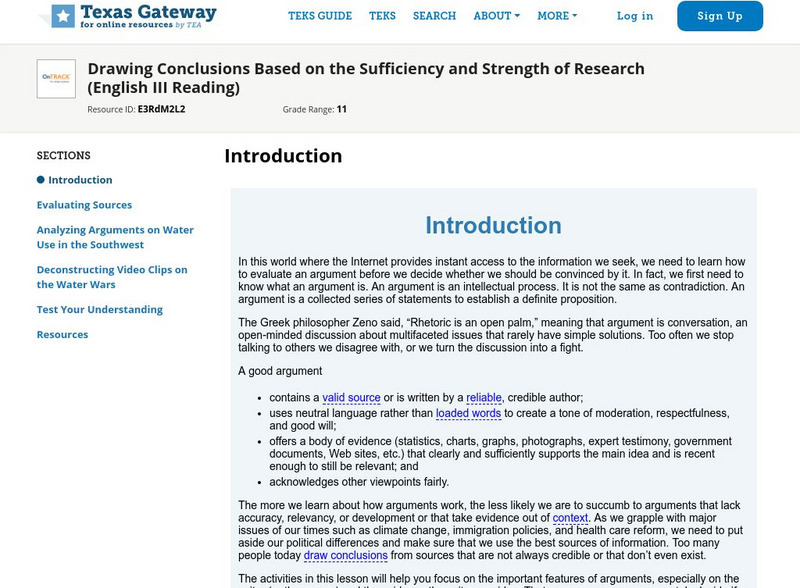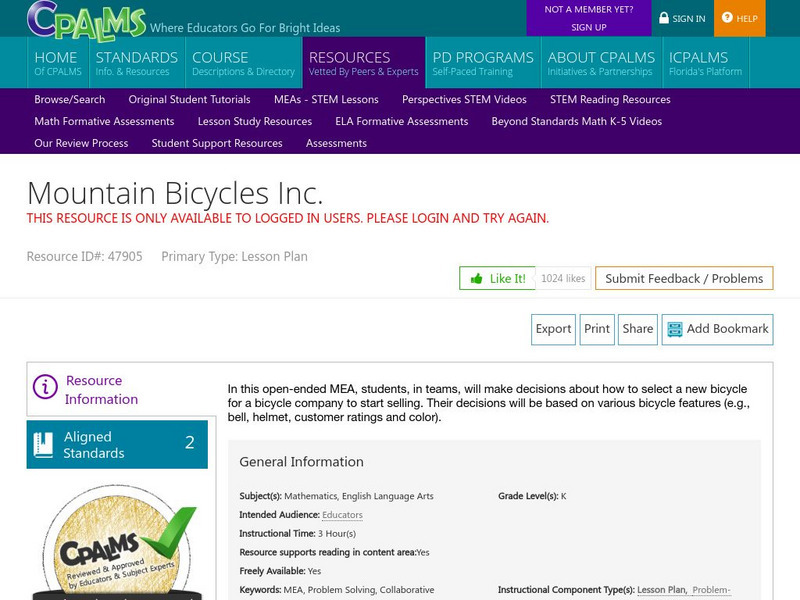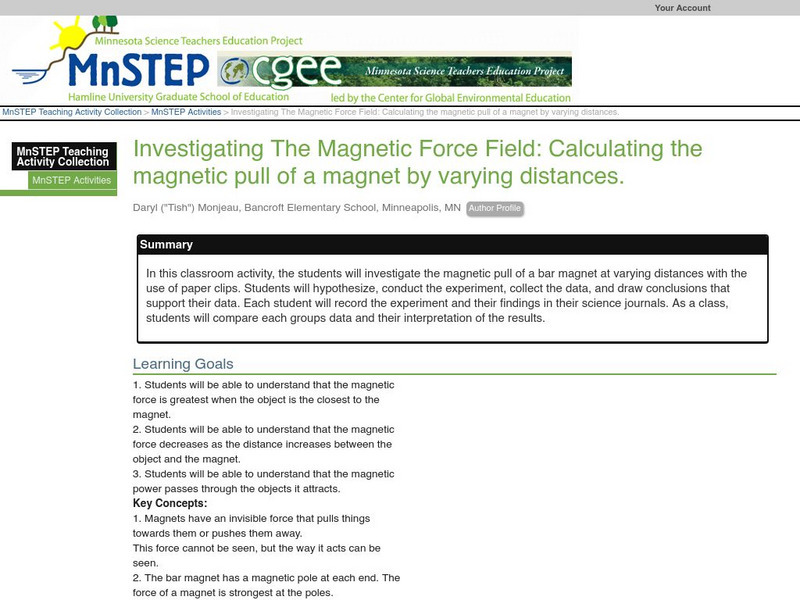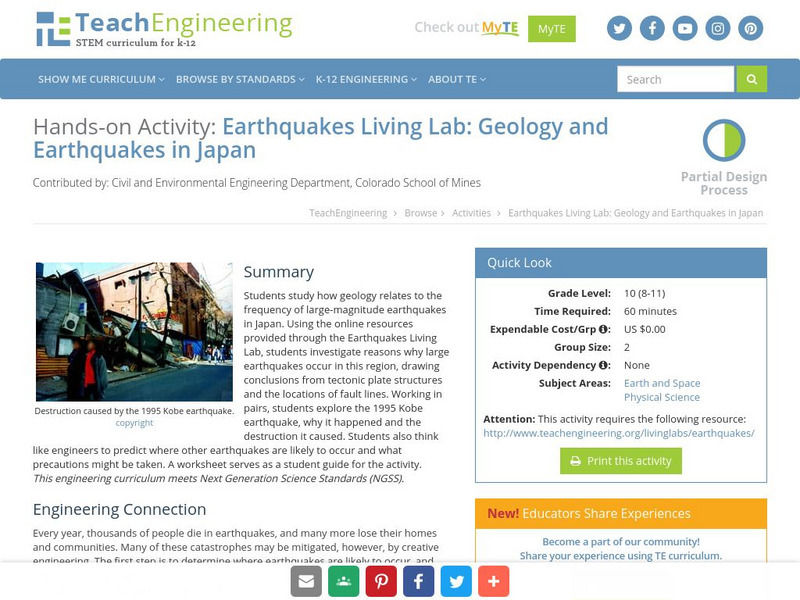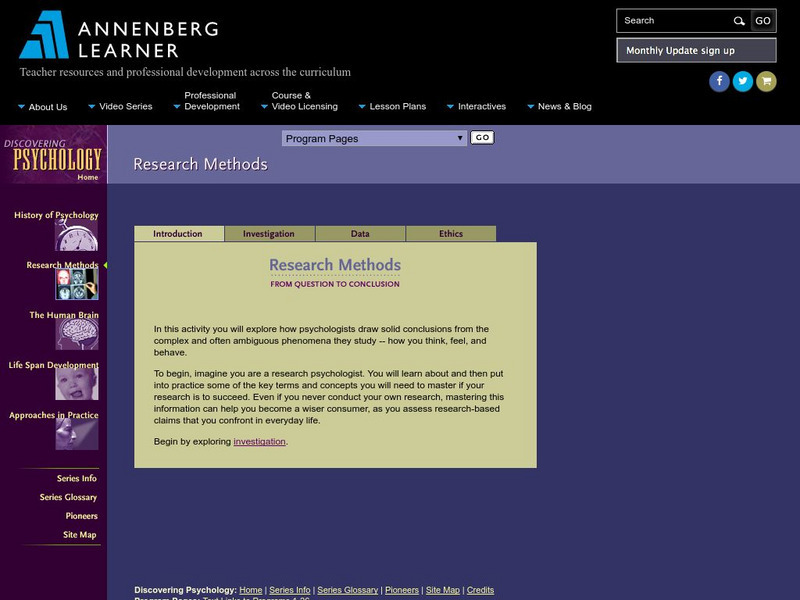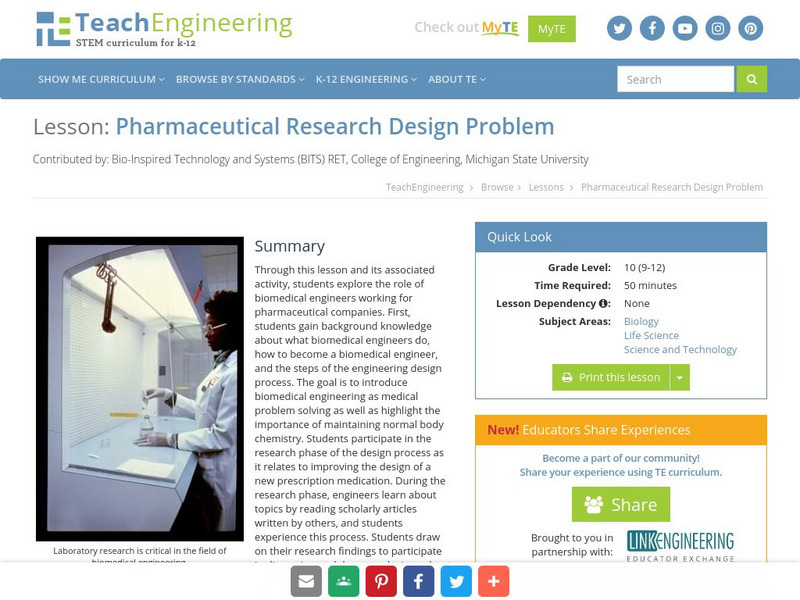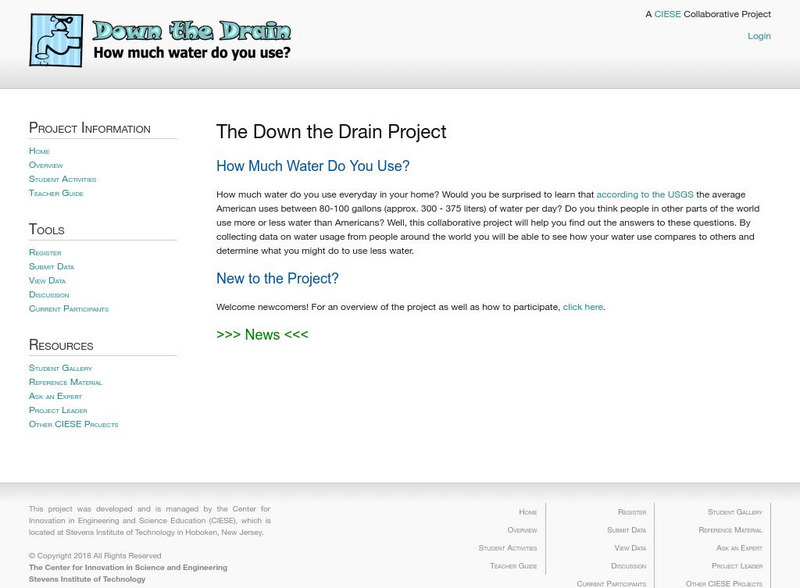Texas Education Agency
Texas Gateway: Drawing Conclusions on the Sufficiency and Strength of Research
The activities in this lesson will help you focus on the important features of arguments, especially on the writer (or the source) and the evidence the writer provides. That way, you can more accurately decide if an argument is valid and...
Khan Academy
Khan Academy: Activity: Historos Cave
An activity for students to draw conclusions about how early humans lived by drawing on information from earlier lessons and researching caves.
Texas Instruments
Texas Instruments: Taks Activities Objective 5: Quadratic Functions
For problem situations, the student analyzes graphs of quadratic functions and draws conclusions
Scholastic
Scholastic: The Lookout Mountain Tunnel
Reproducible activity about drawing conclusions that provides a reading passage and comprehension questions. Also includes a link to a key at the bottom of the page.
City University of New York
Scientific Method and Probability: Interactive Activity
This interactive lesson begins with the basics and carries through to methods of data analysis, all interactively. Supporting material is excellent.
Khan Academy
Khan Academy: Activity: Who Knows What?
In this activity, you'll start to explore how examining the same event from different perspectives can result in drawing varied conclusions surrounding that event. You will be answering questions about the eruption of Mt. Vesuvius based...
CPALMS
Mountain Bicycles, Inc.
[Free Registration/Login Required] During this MEA simulation, kindergarten students will be deciding which type of bike will be best for a company to sell in their community. Students must work in cooperative groups as they determine...
Utah Education Network
Uen: Utah Act. 03: Just a Minute
Using the tradebook Just a Minute by Teddy Slater, 2nd graders will learn about what is needed for a healthy body. Students will draw and illustrate a book that will teach other about short activities that will support a healthy body.
Alabama Learning Exchange
Alex: "Nuts" About Peanuts! (Reading)
The lesson will be implemented as part of a unit about plants. The students will learn about the growth cycle of a peanut and use a Five-Step Sequence Think-sheet to sequence the steps. They will also make predictions and complete...
National Health Museum
Access Excellence: The Blackout Syndrome
Become a medical investigator trying to solve the cause of a mysterious disease. Through a four-part mystery series, students try to figure out the source of the disease and how to treat it. By reading clues students make predictions and...
Concord Consortium
Concord Consortium: Protein Folding
Generate all polar, all nonpolar, or random proteins and observe how the protein folds in response to these molecular properties. Explore how the potential energy of the system changes over time to draw conclusions about how proteins...
ArtsNow
Arts Now Learning: Self Portraits With the Touch of a Finger [Pdf]
In this lesson, students will explore self-portraiture by looking at classical portrait paintings, such as Diego Velazquez's La Infanta Margarita or Raphael's Portrait of Baldassare Castiglione. A close look at these works reveals...
Science Education Resource Center at Carleton College
Serc: Investigating the Magnetic Force Field: Calculating Magnetic Pull
In this classroom activity, the students will investigate the magnetic pull of a bar magnet at varying distances with the use of paper clips. Students will hypothesize, conduct the experiment, collect the data, and draw conclusions that...
TeachEngineering
Teach Engineering: Wild Wind
Students will learn the difference between global, prevailing and local winds. In this activity, students will make a wind vane out of paper, a straw and a soda bottle and use it to measure wind direction over time. Finally, they will...
TeachEngineering
Teach Engineering: Build a Charge Detector
In this hands-on activity, students explore the electrical force that takes place between two objects. Each student builds an electroscope and uses the device to draw conclusions about objects' charge intensity. Students also determine...
US National Archives
National Archives: Confronting Work Place Discrimination on the Wwii Homefront
African Americans were not able to take advantage of the booming industries as Americans were mobilizing for WWII. The FEPC was established to make sure Roosevelt's executive order providing for equal opportunities in defense industries...
TeachEngineering
Teach Engineering: Earthquakes Living Lab: Geology and Earthquakes in Japan
Using the online resources provided through the Earthquakes Living Lab, students investigate reasons why large earthquakes occur in Japan, drawing conclusions from tectonic plate structures and the locations of fault lines.
ClassFlow
Class Flow: The Three Little Javelinas
[Free Registration/Login Required] This flipchart is to be used while reading the book The Three Little Javelinas. It includes a phonics review, vocabulary and drawing conclusions lessons, compare/contrast, and websites that would...
Annenberg Foundation
Annenberg Learner: Discovering Psychology: Research Methods
In this activity, you will explore how psychologists draw solid conclusions from the complex and often ambiguous phenomena they study -- how you think, feel, and behave.
TeachEngineering
Teach Engineering: Pharmaceutical Research Design Problem
Through this lesson and its associated activity, students explore the role of biomedical engineers working for pharmaceutical companies. First, students gain background knowledge about what biomedical engineers do, how to become a...
Other
The Habitable Planet Simulation
This activity is designed to accompany an interactive on the Annenberg Learner website. Students investigate the changes that take place in an ecosystem when they alter the organisms in a food web. As they work with the simulation, they...
Center for Innovation in Engineering and Science Education, Stevens Institute of Technology
Ciese: Down the Drain Project
Teachers can start this project at any time and no registration is required. Students collect data about water usage for themselves, their homes and their class. They analyze it, make predictions about it, and submit the data to the...
Texas Education Agency
Texas Gateway: Distinguishing Between Inductive and Deductive Reasoning
This lesson focuses on distinguishing between inductive and deductive reasoning. Sometimes it's difficult to separate these two types of reasoning because we often use them together; drawing conclusions in inductive reasoning is likely...
US National Archives
National Archives: Congress Protects the Right to Vote
Students will draw conclusions regarding actions taken by Congress when passing the Voting Rights Act of 1965. They will weigh the balance of power between the federal and state governments when protecting the right to vote. Materials...
